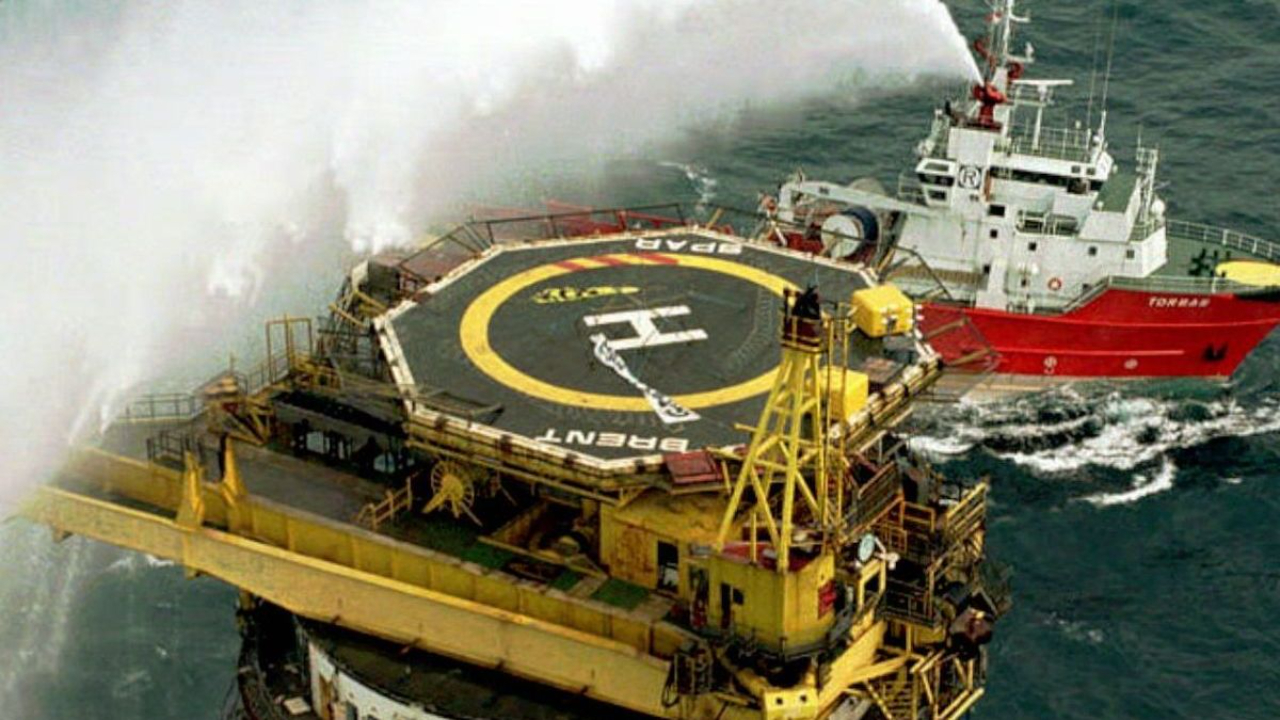Case Study: Shell Brent Spar

The Brent Spar episode proved that it is not enough for a company to be in the right, if it also fails also to engage with stakeholders and convince the media. It showed that even a major multinational can be defeated by hostile public opinion. Shell lost the PR battle, and then lost the regulatory battle as a result.
The context
The North Sea contains over 350 drilling rigs and oil production platforms. They are very large and contain some level of contamination from oil exploration and production. After a period of service they become obsolete or unsafe and need to be disposed of.
One such platform was Brent Spar, a 14,000 ton, 200-metre high platform which by 1995 was no longer usable. Its part-owner Shell spent three years and millions of pounds on research and environmental modelling which concluded (correctly) that the least damaging option was to tow Brent Spar to a very deep area of the North Sea and sink it. This would cause minimal environmental harm -- as opposed to every other choice available. Shell applied for permission to the UK's Department of Trade and Industry, which granted a license.
The crisis
On 2 May 1995, two days after Shell announced its plans, environmental campaigners from Greenpeace landed 12 protesters on the rig.
Greenpeace told the media that the Brent Spar contained “over 130 tons of highly toxic and radioactive substances” which would cause severe environmental damage. Greenpeace also released a statement by a well-known scientist saying that Shell's disposal plans would cause irreparable harm to the wildlife in the area of the disposal site.
The protesters stayed on the platform for three weeks, during which period they were continually photographed and filmed by the world's press. The story made front-page news all round the world.
The response
Shell reacted aggressively to the protest, including using water cannons when Greenpeace attempted to block the rig’s way with inflatable boats and to deliver supplies in helicopters. This made particularly strong media pictures.
Shell also stood firm in the public arena, knowing that its science was correct. It published full-page newspaper advertisements explaining its decision.
The consequences
The consequences of this media storm were dramatic. German environmentalists firebombed two Shell petrol stations and sent a mail bomb to Shell's offices. British press reported that the boycott was costing Shell £10 million a day, a 20% decrease in sales.
Within days, the Governments of Germany, Sweden, The Netherlands, Belgium and Denmark were demanding that the British Government rescind its license for Shell to sink the Brent Spar.
But the tide of media and public opinion had turned against it so dramatically that it felt it could no longer continue.
On June 20, Shell announced suddenly and unexpectedly that it was re-considering its decision because: 'We find ourselves in an untenable position'.
The outcome
The Brent Spar ended up in a Norwegian fjord and was eventually disposed of on land, creating many times more environmental problems than Shell’s Atlantic plan.
Greenpeace: In the aftermath - but commanding nothing like the same media or government attention – a newspaper revealed that Greenpeace had falsified its data. The Brent Spar contained at worst 10 tons of oil residue - not the 130 tons which they had alleged. Earlier Greenpeace estimates had reached as high as 5,000 tons. Second, their scientific expert was shown to have been basing his environmental damage estimates on a shallow seabed site which Shell had considered but long ago ruled out - and Greenpeace knew it. Lord Melchett was forced to apologies to the media (although not to Shell) for misleading them. But by then it was too late; the damage was done – not only to the environment, but also to Shell’s reputation, which never fully recovered.
Shell: Perhaps the most radical effect of this incident was on Shell itself. The company had been so sure that careful science is enough - but were brought suddenly and dramatically into the modern era when they found that the media and governments are more concerned with public opinion than they are with scientific accuracy. Shell decided on a complete change of policy, and are recognised today as the most responsive and interactive companies in any industry.
(Ironic footnote: Melchett was later sacked from the board of Greenpeace UK because he had taken a consultancy role with Burson Marsteller, one of the largest PR firms in the world, with Monsanto as one of its principal clients.)
ISOC course links
This content relates to the following short courses at the International School of Communications, available live online and also face-to-face at our training centres in London and Dubai:
- Crisis Communication Programme
- Crisis Communication Strategy and Management
- Crisis Media Training
- Handling the Media in a Crisis
- Reputation and Issues Management
- Strategic Media Engagement
Stay connected with news and updates!
Join our mailing list to receive the latest news and updates from our team.
Don't worry, your information will not be shared.
We hate SPAM. We will never sell your information, for any reason.

